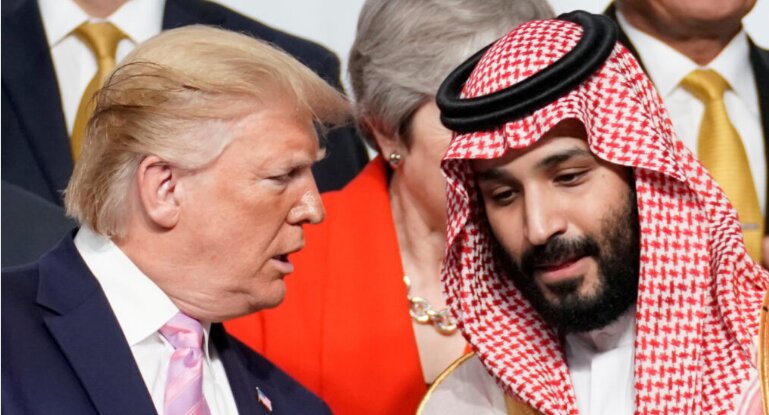Trump’s looming Riyadh visit and regional power dynamics

TEHRAN- President Donald Trump is embarking on his first international trip of his second term, returning to Saudi Arabia—a symbolic echo of his 2017 debut on the world stage. The visit, however, unfolded against a backdrop of heightened regional tensions, including the ongoing Gaza conflict, the uphill Iran nuclear negotiations, and shifting alliances.
Trump's approach, characterized by transactional diplomacy and personal rapport with authoritarian leaders, aimed to recalibrate U.S. influence in West Asia.
Trump's visit coincides with a major (Persian)Gulf Cooperation Council (GCC) summit in Riyadh on May 14, bringing together Persian Gulf Arab leaders and the United States to address pressing regional issues. The summit serves as a platform for discussing security, economic cooperation, and the ongoing challenges facing the region.
Saudi Arabia's leadership, particularly Crown Prince Mohammed bin Salman (MBS), views the summit as an opportunity to strengthen ties with the U.S. while cautiously navigating contentious topics such as the Israel-Palestine conflict and normalization with Israel.
US nuclear strategy in West Asia
The potential U.S.-Saudi civil nuclear deal emerging from President Trump's visit represents a major strategic development with far-reaching implications for regional security and U.S. influence in West Asia. Unlike previous U.S. administrations, the Trump administration has reportedly dropped the longstanding U.S. condition that Saudi Arabia must normalize relations with Israel before advancing nuclear cooperation talks.
This shift signals a pragmatic decoupling of the nuclear agreement from the contentious issue of an Israeli-Saudi normalization, which Riyadh has consistently linked to progress on Palestinian statehood.
However, the deal has raised significant concerns in Israel. Israeli officials fear that advancing a Saudi nuclear program without Israeli consent could undermine regional security, especially given Saudi ambitions to enrich uranium. The Netanyahu government, lacking enough support in the Senate to block the deal, has expressed unease about being sidelined, as Washington appears determined to proceed regardless of Israeli objections.
The situation complicates U.S.-Israel relations and could shift the regional power balance, pressuring Israel to recalibrate its diplomatic and security strategies in response to a more autonomous and nuclear-capable Saudi Arabia.
In sum, the U.S.-Saudi nuclear cooperation initiative reflects a bold recalibration of U.S. West Asia policy under Trump, prioritizing strategic and economic interests with Riyadh while risking heightened tensions with Israel and altering the delicate regional equilibrium.
In his second term as president, Trump seeks to expand the Abraham Accords to as many Arab states as possible in order to create a local peace framework that includes political, economic, and security cooperation. However, the conflict between Israel and Hamas and recent Israeli government activity have made this increasingly difficult. Saudi Arabia and neighboring Arab states condemned Israel's military actions in Gaza, and even MBS accused Israel of genocide, basically tripping down, bringing back the Saudi demand that Palestinian statehood be a precondition for normalization.
The significance of this trip, just after the start of Donald Trump's second term, is worth noting. His choice of Saudi Arabia as his first foreign destination indicates the importance of the Middle East in U.S. foreign policy and sends a strong signal that Washington intends to strengthen and enhance its engagement in the Persian Gulf region. The trip aims to redefine U.S. relations with key regional international partners and build the regional security architecture.
Ultimately, Trump's trip to Saudi Arabia runs much deeper than an ordinary diplomatic visit, containing key strategic messages and fundamental changes in U.S. foreign policy and regional dynamics. With a focus on two main pillars of major investments, advanced arms sales, nuclear cooperation, and necessary reconsideration of the Palestine-Israel issue, the trip could provide a new chapter to the extremely complicated and tense history of West Asia, making fundamental changes to its security, political, and economic equations.
Leave a Comment